《“一国两制”下香港的民主发展》白皮书(双语全文)
新华网 2021-12-20 14:18

国务院新闻办公室12月20日发表《“一国两制”下香港的民主发展》白皮书。全文如下:
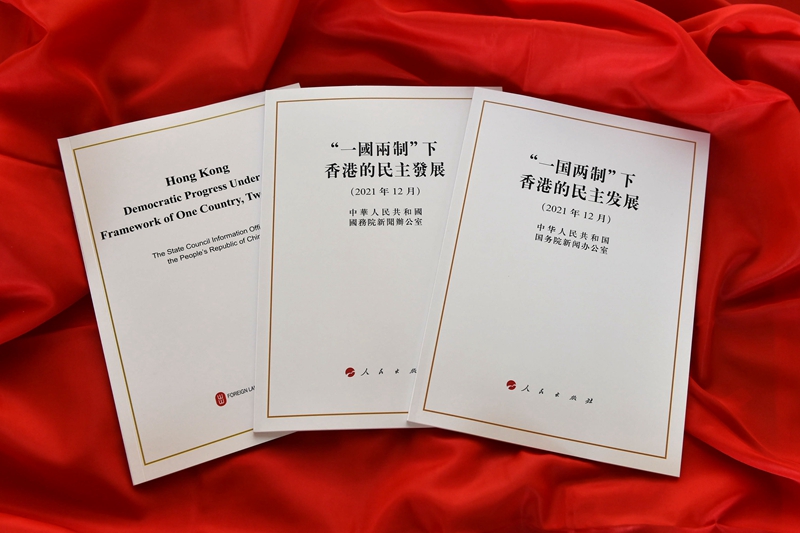
“一国两制”下香港的民主发展
Hong Kong
Democratic Progress Under the Framework of One Country, Two Systems
(2021年12月)
中华人民共和国
国务院新闻办公室
The State Council Information Office of the People’s Republic of China
December 2021
目录
Contents
前言
Preamble
一、香港在英国殖民统治下没有民主可言
I. Under British Colonial Rule There Was No Democracy in Hong Kong
二、回归祖国开启了香港民主的新纪元
II. The Return of Hong Kong to China Ushered in a New Era for Democracy
三、中央政府坚定支持香港特别行政区民主向前发展
III. The Central Government Is Committed to Developing Democracy in Hong Kong
四、反中乱港势力阻挠破坏香港特别行政区民主发展
IV. Anti-China Agitators Undermine and Disrupt Democracy in Hong Kong
五、香港特别行政区民主发展重回正轨
V. Development of Democracy in Hong Kong Is Back on Track
六、香港特别行政区民主发展前景光明
VI. The Prospects Are Bright for Democracy in Hong Kong
结束语
Conclusion
前言
Preamble
香港在英国殖民统治之下没有民主可言。中国政府对香港恢复行使主权,实行“一国两制”方针,创建了香港特别行政区的民主制度,并在实践中支持其不断发展完善。中国共产党和中国政府建立发展香港民主的决心、诚意以及付出的巨大努力一以贯之,有目共睹。
Under British colonial rule, there was no democracy in Hong Kong. After resuming the exercise of sovereignty, the Chinese government implemented the basic policy of One Country, Two Systems and established democracy in the Hong Kong Special Administrative Region (HKSAR). It has since provided constant support to the region in developing its democratic system. The determination, sincerity, and efforts of the Communist Party of China (CPC) and the Chinese government to this end have remained consistent and are obvious to any objective observer.
一个时期以来,受各种内外复杂因素影响,反中乱港活动猖獗,香港局势一度出现严峻局面。香港反中乱港势力勾连外部敌对势力,屡屡阻挠香港特别行政区民主的发展。他们以争取“民主”为名,行分裂国家、颠覆政权之实,意图把香港变成实施“颜色革命”的桥头堡,严重冲击国家宪法和香港基本法确定的宪制秩序,危害国家安全,损害香港繁荣稳定。
Hong Kong has faced an extended period of damaging social unrest caused by anti-China agitators both inside and outside the region. Over the years, those who attempt to overturn the new constitutional order and destabilize Hong Kong and the rest of China have colluded to obstruct the democratic process. On the pretext of “fighting for democracy”, they have attempted to stage a color revolution, split Hong Kong from China, and seize power there. Their attempts have gravely threatened the order established by the Constitution of the People’s Republic of China (Constitution) and the Basic Law of the Hong Kong Special Administrative Region (Basic Law), thus endangering China’s national security and Hong Kong’s stability and prosperity.
中共十八大以来,习近平总书记就新形势下坚持“一国两制”方针等重大问题作出一系列重要论述,为推进“一国两制”实践行稳致远提供了根本遵循。习近平总书记指出,香港特别行政区的民主发展必须遵循“一国两制”方针和香港基本法,从本地实际出发,依法有序进行。针对近年来香港出现的政治乱象及其造成的严重危害,中国共产党和中央政府审时度势,作出健全依照宪法和基本法对特别行政区行使全面管治权、完善同宪法和基本法实施相关制度机制的重大决策,推动建立健全香港特别行政区维护国家安全的法律制度和执行机制,完善香港特别行政区选举制度,坚定落实“爱国者治港”原则。这一系列标本兼治的举措,推动香港局势实现由乱到治的重大转折,推动香港特别行政区民主发展重新回到正确轨道。中央政府将坚定不移、全面准确贯彻“一国两制”方针,坚定不移支持香港特别行政区发展符合其宪制地位和实际情况的民主制度。
Since the 18th CPC National Congress in 2012, President Xi Jinping has emphasized on many occasions the importance of upholding the One Country, Two Systems policy in the new era. His observations provide the fundamental guidance for its sustained implementation. President Xi has pointed out that in developing democracy in Hong Kong, we must abide by the principle of One Country, Two Systems and the Basic Law and act in an orderly manner, in line with local realities and in accordance with the law. To put an end to the political turmoil of recent years and the serious damage it has caused in Hong Kong, the CPC and the Chinese government have taken a series of major decisions, based on a clear understanding of the situation in the region. These include strengthening the central authorities’ overall jurisdiction over the HKSAR in accordance with the Constitution and the Basic Law, improving the relevant systems and mechanisms to enforce the Constitution and the Basic Law, reinforcing the legal framework and supporting mechanisms for safeguarding national security in the HKSAR, and modifying the region’s electoral system, thereby laying the foundations for Hong Kong patriots to govern Hong Kong. These measures address both the symptoms and root causes of the unrest, and have restored order to Hong Kong, returning the democratic process to a sound footing. The Chinese government will continue to implement the principle of One Country, Two Systems fully and faithfully, and it will support Hong Kong in developing a democratic system that conforms to the region’s constitutional status and actual conditions.
发展完善香港特别行政区的民主,对保障香港居民民主权利、实现良政善治、确保香港长期繁荣稳定和长治久安具有重大意义。全面回顾香港特别行政区民主的产生和发展历程,进一步阐明中央政府对香港特别行政区民主发展的原则立场,目的是正本清源、拨乱反正、凝聚共识,继续推动香港特别行政区民主稳步向前发展,确保香港“一国两制”实践行稳致远,更好造福全体香港居民。
Developing and improving democracy in Hong Kong is of profound importance in safeguarding the democratic rights of the people, realizing good governance, and ensuring long-term prosperity, stability and security. A comprehensive review of the origin and development of democracy in the HKSAR, and the principles and position of the central government, will help clarify facts, set the record straight, and build consensus. It will further the orderly progress of democracy in Hong Kong, ensure the long-term implementation of One Country, Two Systems, and benefit all local residents.
一、香港在英国殖民统治下没有民主可言
I. Under British Colonial Rule There Was No Democracy in Hong Kong
香港自古以来是中国领土。十九世纪二十年代,英国商人开始利用香港向中国内地走私贩卖鸦片。鸦片战争后,英国军队侵占香港岛。1842年8月29日,英国强迫清政府签订中国近代史上第一个不平等条约——《南京条约》,割让香港岛。第二次鸦片战争后,英国迫使清政府于1860年10月24日签订《北京条约》,割让九龙半岛南端界限街以南的地区。中日甲午战争后,英国趁火打劫,强迫清政府于1898年6月9日签订《展拓香港界址专条》,强租“新界”地区99年,由此侵占整个香港地区。这三个不平等条约都是英国侵略中国的产物,中国人民和辛亥革命后历届中国政府从来不予承认。
Hong Kong has been a part of China’s territory since ancient times. In the 1820s, British merchants began smuggling opium into the mainland of China via Hong Kong Island.
After the First Opium War of 1840-1842, British troops occupied Hong Kong Island. On August 29, 1842, Britain forced the Qing government to sign the Treaty of Nanking, the first of the unequal treaties in China’s modern history, which ceded Hong Kong Island to Britain.
After the Second Opium War of 1856-1860, Britain forced the Qing government to sign the Beijing Convention on October 24, 1860, which ceded to the UK the part of Kowloon Peninsula south of present-day Boundary Street.
After the Sino-Japanese War of 1894-1895, Britain again forced the Qing government to sign the Convention Between Great Britain and China Respecting an Extension of Hong Kong Territory on June 9, 1898, by which the New Territories were leased to Britain for 99 years. The rental payment for this “lease” was zero. As a result, Britain occupied the entire area that is now known as Hong Kong.
These three unequal treaties were imposed on China through British aggression. They were never recognized as valid by the Chinese people or by any Chinese government after the Revolution of 1911.
(一)英国对香港实行典型的殖民统治
1. Britain Exercised a Typical Colonial Rule over Hong Kong
英国直接委任总督代表英国管治香港,从未征询港人意见。总督只向英国负责,完全听命于英国政府,被授予在香港至高无上的权力和特权,不受当地任何制约,“领其辖内一切事宜”,总揽行政、立法大权于一身,拥有对政府高级官员和法官的任免权,并兼任驻港英军总司令。行政局和立法局只是总督决策和立法的咨询机构,其成员经英国政府批准后由总督委任,对总督负责。总督既是行政局主席,也是立法局主席。直至1993年2月,总督才不再兼任立法局主席。一直到回归以前,香港终审权和法律的最终解释权都由英国枢密院司法委员会行使。
A governor was appointed to rule on behalf of Britain without the people of Hong Kong ever being consulted. He was answerable only to the British government and was entirely at its command. His paramount powers and prerogatives in Hong Kong were free of any checks and balances, and he took charge of “all things that belong to his said office”. He assumed all executive and legislative powers, and had the power to appoint and remove all senior government officials and judges. He also served as commander-in-chief of the British forces in Hong Kong.
The Executive Council and the Legislative Council, whose members were appointed by the governor with the approval of the British government and who answered to the governor, were merely advisory bodies on decision-making and lawmaking for the governor. The governor was president of both bodies. It was not until February 1993 that the governor no longer served concurrently as president of the Legislative Council.
Before Hong Kong’s return to China, the Judicial Committee of the British Privy Council exercised the power of final adjudication and the power of final interpretation of all laws in Hong Kong.
港英当局长期实行高压政策,严密管控新闻出版,钳制言论自由。1952年3月,《大公报》因转载《人民日报》关于港英当局暴行的短评,被判刊载煽动性文字罪,受到罚款停刊的严厉处罚。1967年8月,三家报纸因刊登呼吁香港同胞反抗镇压的文章,被港英当局以刊发欺诈性、煽动性文章为由封禁6个月,报社所有者和印刷商被判入狱三年。港英当局实行特务统治,利用英军情报机构、警务处政治部对华人进行监视,对心向祖国、与中国内地联系紧密的社会团体和民众,采取各种手段打击压制。
The British colonial government maintained a repressive rule in Hong Kong, tightly controlling the press and restricting freedom of speech.
In March 1952, Ta Kung Pao reprinted a commentary by the People’s Daily on brutalities committed by the British Hong Kong authorities. The paper was convicted of publishing seditious content. A heavy fine was imposed on it, and it was banned from publication.
In August 1967, three newspapers published articles calling on the Hong Kong people to resist oppression. They were ordered to suspend publication for six months, accused of publishing fraudulent and seditious articles, and the newspapers’ owners and printers were sentenced to three years’ imprisonment.
港英当局对华人实行种族歧视,实施严刑峻法,长期使用笞刑、绞刑等酷刑;实行“华洋分治”,长期对华人实施宵禁,要求华人晚上外出须持警司签发的夜晚通行证,违者处以罚款、拘役、鞭笞、戴枷示众,甚至可被当场击毙;除举行宗教仪式和逢年过节外,华人未经批准不得举行公众集会;规定若干主要地段只可建设欧式房屋,禁止华人迁入;长期禁止华人进入某些场所,不准华人与英国人共用一些公共设施。在司法裁判中,华人备遭歧视,同罪不同罚,常被重判重罚。港英当局禁止爱国师生悬挂中国国旗、唱中国国歌,强行关闭爱国学校,解散爱国团体,递解爱国人士出境,武力镇压抗议活动,拘捕爱国群众,枪杀示威工人,制造白色恐怖。
Local Chinese residents were subjected to surveillance by British Military Intelligence and the Special Branch of the Hong Kong Police Force. Patriotic social organizations and residents who had close ties with China’s mainland were brutally suppressed.
The British Hong Kong authorities practiced racial discrimination against local Chinese, and imposed harsh laws and severe punishments on them.
Over many years, local Chinese were subjected to inhumane punishments such as flogging and hanging. The authorities practiced separate rule over Chinese and Westerners and imposed curfews on the local Chinese. A Chinese person had to hold a pass issued by the police superintendent when going out at night; violators could be punished by fine, detention, flogging, wearing a cangue in public, and even summary execution.
The local Chinese were not allowed to hold public gatherings without approval, with the exception of religious ceremonies and during holidays.
Only European-style buildings could be built in some downtown areas, and the local Chinese were prohibited from living there.
The local Chinese were long barred from entering some premises and sharing certain public facilities with the British.
In judicial proceedings, the Chinese suffered discrimination and were subjected to different penalties from Westerners for the same offense, and the penalties were often severe.
The authorities prohibited patriotic teachers and students from flying the Chinese national flag and singing the Chinese anthem in schools. Patriotic schools were closed down, patriotic organizations were dissolved, patriotic individuals were deported, protests were brutally suppressed, and patriots were arrested. Workers who staged demonstrations were shot at and some were killed.
华人长期被排斥在港英当局管治架构之外,不能参政议政。1880年才有第一位华人被委任为立法局非官守议员,1926年才有第一位华人被委任为行政局非官守议员,1948年才有第一位华人担任政务官,1957年才有第一位华人担任警司,1989年才有第一位华人担任警务处处长,而律政司一直到1997年香港政权交接前最后时刻仍由英国人掌控。
Local Chinese were long excluded from governance bodies and were denied participation in Hong Kong’s governance.
It was not until 1880 that a Chinese was appointed a non-official member of the Legislative Council.
It was not until 1926 that a Chinese was appointed a non-official member of the Executive Council.
It was not until 1948 that a Chinese held the post of administrative officer.
It was not until 1957 that a Chinese became a police superintendent.
It was not until 1989 that a Chinese served as the commissioner of police.
The post of attorney general was held by a Briton right up until Hong Kong’s return to China.
(二)英国政府屡次禁止在香港进行民主改革
2. The British Government Repeatedly Rejected All Calls for Democratic Reform in Hong Kong
面对香港社会不断提出的民主诉求,英国政府一概予以拒绝或者置之不理。在很长一段时期,香港社会不断有人提出设立市议会,或者改组立法局、在立法局设立民选议席,还有要求实行地方自治等,均被英国政府拒绝。第二次世界大战后,在国际殖民体系迅速瓦解、民主运动风起云涌的情况下,1946年时任总督迫于社会压力向英国政府建议设立民选市议会、改革地方行政,英国政府仍然拒绝接受。1976年5月20日,英国政府在批准《公民权利和政治权利国际公约》时,通过提出保留的方式,明确排除公约关于定期选举的规定在香港适用。可见,英国殖民统治者不会允许在其统治香港的时候出现民主的元素。
People in Hong Kong made numerous demands for democracy, but the British government rejected or ignored all of them. For example:
Over a prolonged period in Hong Kong, there were repeated calls to establish a municipal council, provide elected seats in the Legislative Council, and restructure the Legislative Council, as well as requests for local autonomy. All were rejected by the British government.
After World War II, the international colonial system collapsed and democratic movements surged across the world. In 1946, under pressure from the Hong Kong people, the then governor Mark Aitchison Young made proposals to the British government to establish an elected municipal council and reform local governance, which, however, were refused.
On May 20, 1976, the British government ratified the International Covenant on Civil and Political Rights. Many of the rights were denied to Hong Kong and other dependencies. Article 25 (b) of the covenant provides the right “to vote and be elected at genuine periodic elections which shall be by universal and equal suffrage and shall be held by secret ballot…” However, by means of a specific reservation, the British government explicitly excluded “the establishment of an elected Executive or Legislative Council in Hong Kong”.
It can be seen from all this that under their rule, the British colonial authorities suppressed any democratic elements in Hong Kong.
(三)英国在殖民统治末期急速推进“政制改革”别有用心
3. The Sudden Interest of the British Government in “Electoral Reform” at the End of the Colonial Rule Revealed Its Ulterior Motives
1979年3月,时任香港总督访京了解到中国政府将收回香港的坚定立场。英国政府于是立即改变其过往在香港发展民主问题上的反对态度,迅速着手布局“政制改革”,大幅引入和扩大选举,在很短时间内区议会和立法局议席均从全部委任骤变为大部分由选举产生。特别是1992年10月,末任总督刚上任就违反《中华人民共和国政府和大不列颠及北爱尔兰联合王国政府关于香港问题的联合声明》(《中英联合声明》)、违反与《中华人民共和国香港特别行政区基本法》(基本法)相衔接的原则、违反中英双方已经达成的协议和谅解,抛出所谓的“政改方案”,并不顾中方坚决反对,强行实施。
In March 1979, the then Hong Kong Governor Murray MacLehose
paid a visit to Beijing and was left in no doubt about the Chinese government’s determination to recover Hong Kong. The British government then suddenly reversed its previous opposition to democratic reform in Hong Kong, and started a major program to introduce and expand electoral processes. Within a very short period, the Hong Kong district councils and the Legislative Council switched from having all their seats appointed to having most of their seats elected. In particular, in October 1992, soon after he took office, Chris Patten, the last Governor, presented a proposal for electoral reform which violated the Joint Declaration of the Government of the United Kingdom of Great Britain and Northern Ireland and the Government of the People’s Republic of China on the Question of Hong Kong (Sino-British Joint Declaration), violated the principle of aligning Hong Kong’s future political system with the Basic Law, and violated previous agreements and understandings reached between the two sides. Known as the “Three Violations”, these were imposed in Hong Kong in the face of strong opposition from China.
英国自身在确立议会制政体后,其选举制度经历数百年漫长的演进和变迁过程。然而,在其殖民统治香港的最后阶段如此急切地加速推进“政制改革”,完全是别有用心的政治操弄。作为所谓“光荣撤退”部署的一部分,英国政府以打造英式代议制为幌子,企图把香港变成独立或半独立的政治实体,阻碍中国对香港恢复行使主权并实行有效管治,延续英国对香港回归后的政治影响。
After the establishment of the parliamentary system, the electoral system of the UK experienced hundreds of years of evolution, but the British government rushed through electoral reform in Hong Kong in the very short remaining period of the colonial rule. Its ulterior motives were obvious. In fact, this was part of a British attempt to portray their withdrawal as somehow “honorable” under a veneer of “British-style representative democracy”. The intention was to undermine China’s sovereignty and full governance and extend British political influence after Hong Kong’s return to China, by turning Hong Kong into a de facto independent or semi-independent political entity.
英国殖民统治的罪恶及其屡次拒绝在香港发展民主的事实,无论怎样掩饰也改变不了。英国殖民统治不但没有给香港带来任何真正的民主,反而为香港回归祖国后民主的发展埋下了祸根。
The vicious nature of British colonial rule and the British government’s repeated refusal to develop democracy in Hong Kong cannot be concealed or changed. The colonial rule did not bring any genuine democracy to Hong Kong; instead, it laid hidden snares for the development of democracy in Hong Kong after its return to China.









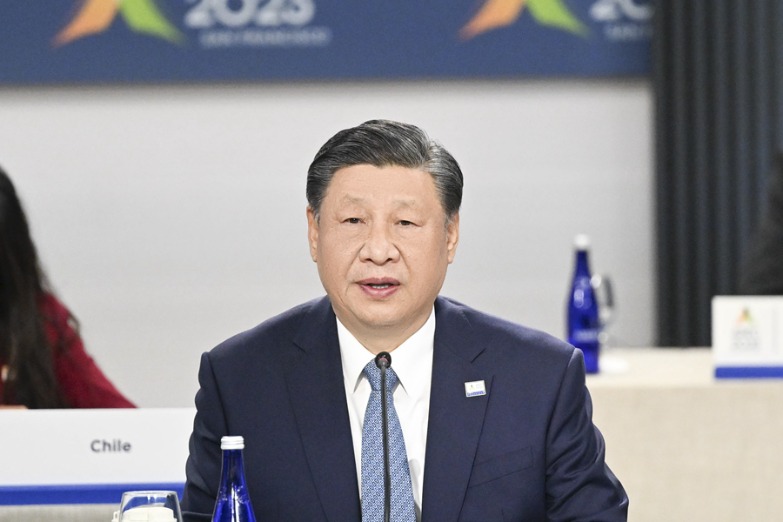
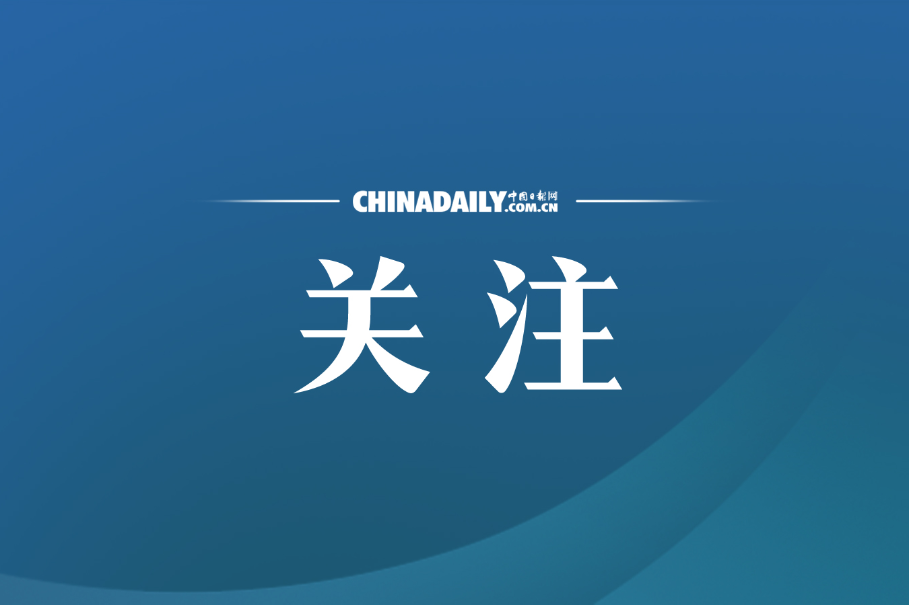
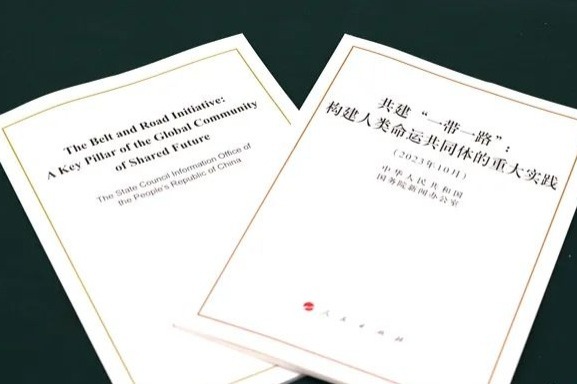
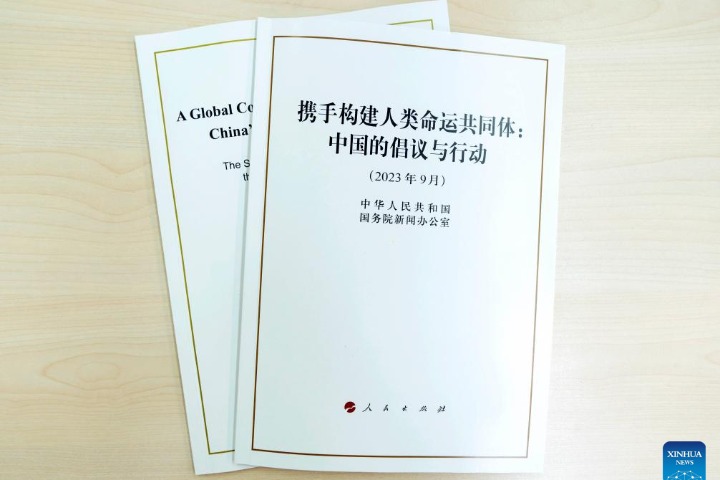
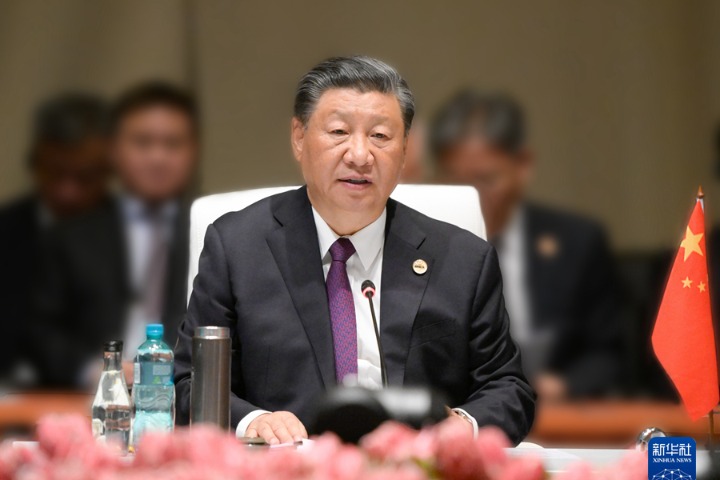



 英语点津微信
英语点津微信 双语小程序
双语小程序